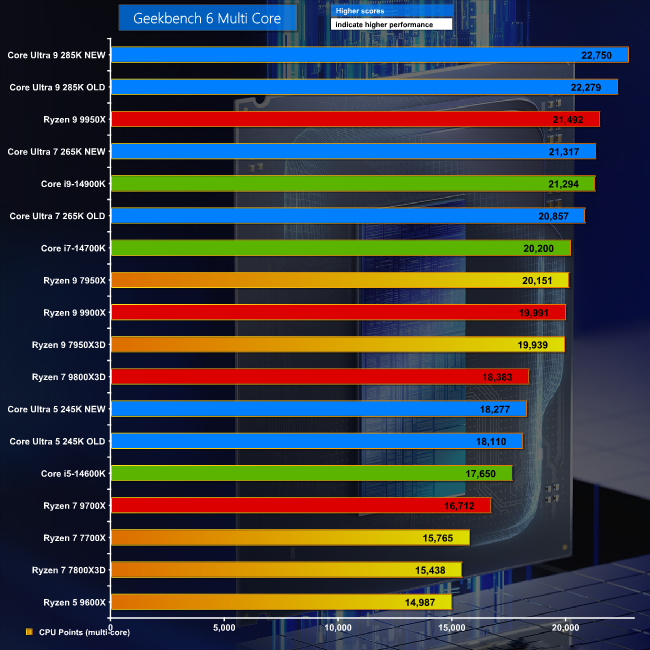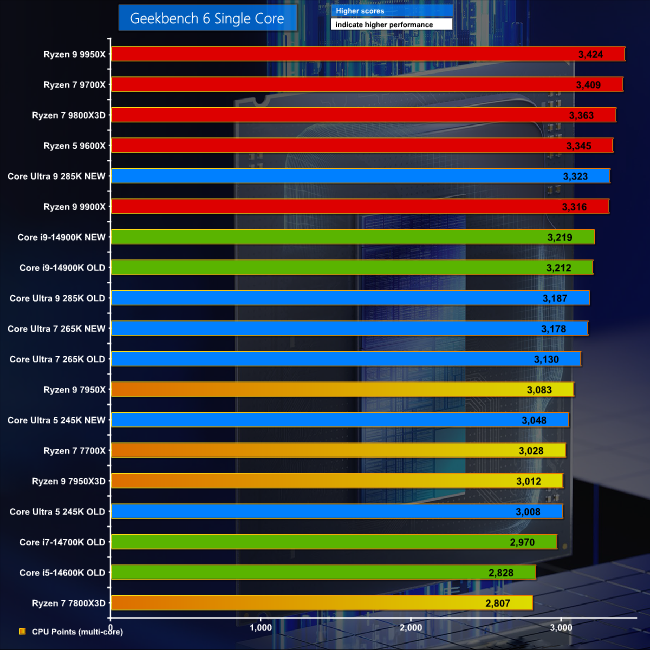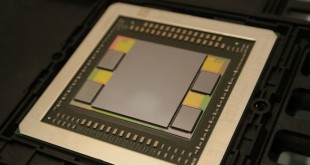Performance and Testing: CPU Tests
Test Systems:
CPU: Intel Core Ultra 200S Arrow Lake
Motherboard: MSI MEG Z890 Ace
Memory: 48GB G.Skill Trident Z5 CK CUDIMM DDR5-8200
CPU: Intel 14th Gen Raptor Lake
Motherboard: Gigabyte Z790 Aorus Master X
Memory: 32GB G.Skill Trident Z5 RGB DR5-6800
CPU: AMD Ryzen 9000
Motherboard: MSI MPG X870E Carbon WiFi
Memory: 32GB G.Skill Trident Z5 Neo DR5-6000
Common components:
Graphics Card: MSI RTX 4090 Ventus 3X 24GB
Storage: 1TB Crucial T700 PCIe Gen5 NVMe M.2 SSD
CPU Cooler: MSI MAG CoreLiquid I360 AIO
Power Supply: Seasonic Focus ATX3.1 GX-1000 Gold
Operating System: Windows 11 24H2
Settings used:
Original testing used Windows 11 24H2 26100.2033
New testing uses Windows 11 24H2 26100.26054
Original Intel Core Ultra 200S Microcode 0X110 and new Microcode 0X114
Original Intel Core Ultra 200S ME firmware 19.0.0.1753 and new ME Firmware 19.0.0.1854
Nvidia driver updated from 565.90 to 566.36
Resizeable BAR Enabled
VBS or Core Isolation Enabled
Power Plan is High Performance and we have confirmed the Balanced plan now behaves the same as the High Performance plan where previously it was unusable
Geekbench 6 Multi Core
In Geekbench 6 Multi Core we see modest improvements for Intel Arrow Lake. The broader point is that Intel topped this chart three months ago and still tops the chart.
Geekbench 6 Single Core
In Geekbench 6 Single Core we again see improvements for Intel Core Ultra 200S, however this time AMD's family of Zen 5 CPUs blocks out the top of the chart with Intel Core i9-14900K close behind.
CPU Clock Speeds and Power Draw
When we stress test the CPUs we see that Core Ultra 9 285K and Core Ultra 7 265K use ten percent less power than Core i9-14900K and Core i7-14700K while running at slightly higher clock speeds. This is welcome news however AMD Zen 5 uses considerably less power than Intel.
 KitGuru KitGuru.net – Tech News | Hardware News | Hardware Reviews | IOS | Mobile | Gaming | Graphics Cards
KitGuru KitGuru.net – Tech News | Hardware News | Hardware Reviews | IOS | Mobile | Gaming | Graphics Cards





